Third-year cadets from the Faculty for Training Specialists for Pre-Trial Investigation Units of the National Police of Ukraine at Dnipro State University of Internal Affairs took part in the events.
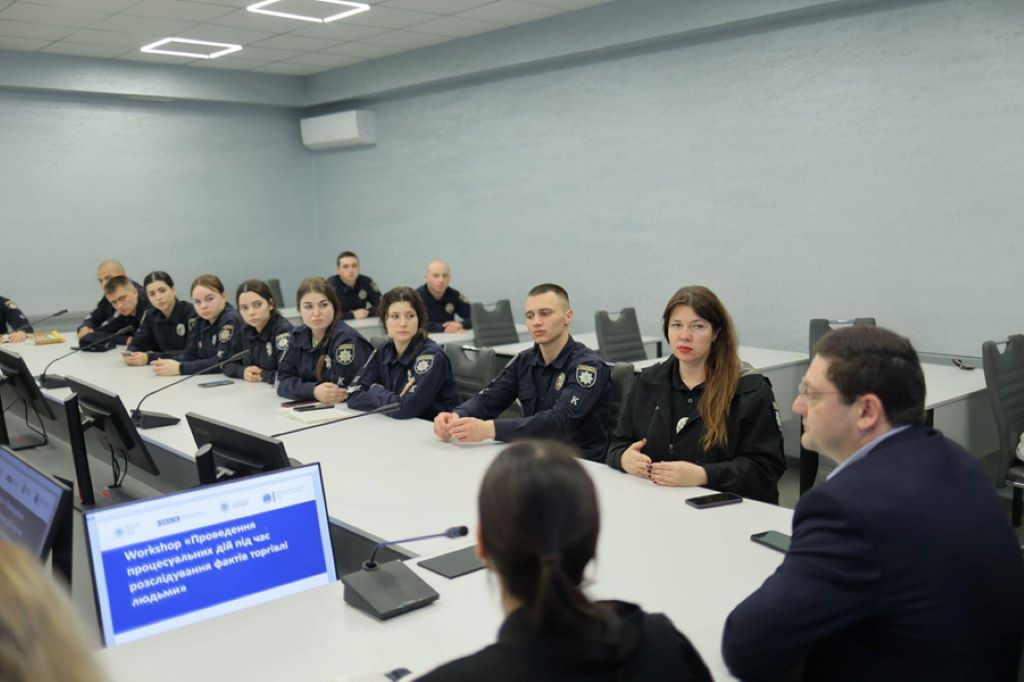
The initiatives were proposed by cadets Tymur Buhaienko, Yehor Hrechyshkin, Mariia Khlivna, and Hanna Terekhova — all graduates of the Winter School on Investigating Human Trafficking Crimes. The school was held within a joint project of the OSCE Support Programme for Ukraine, the Ministry of Internal Affairs of Ukraine, and the National Police of Ukraine.
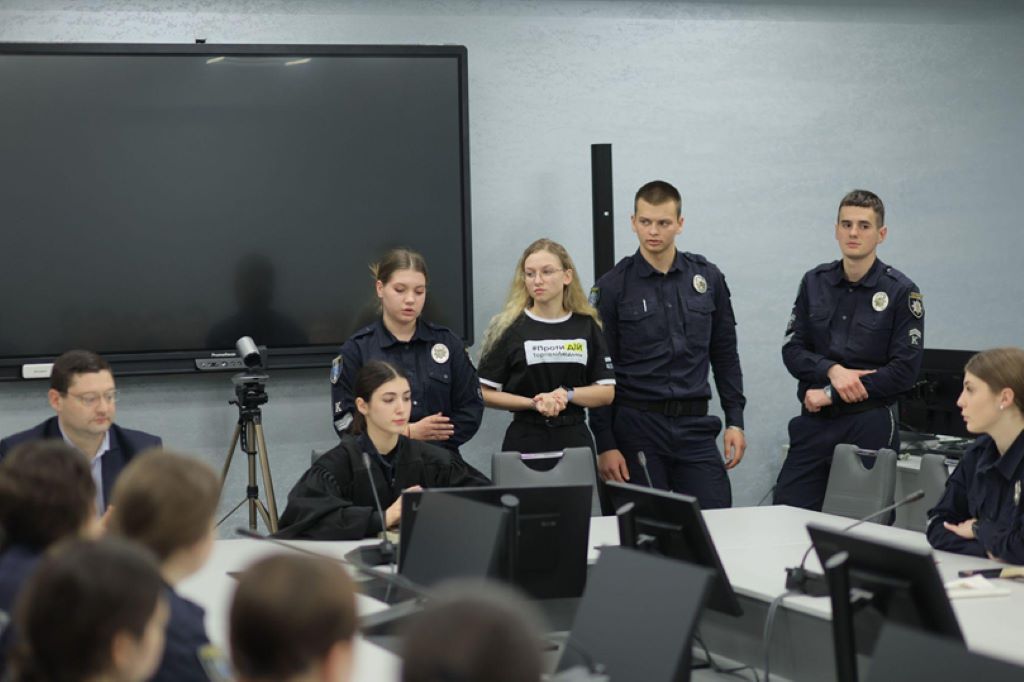
The workshop was opened by Professor of the Department of Criminal Procedure, Candidate of Law, and Police Major Viktoriia Rohalska, along with Maksym Taus, judge of the Leninskyi District Court of Dnipro. The experts discussed procedural aspects of investigating such crimes, with a focus on the importance of proper victim interviewing.
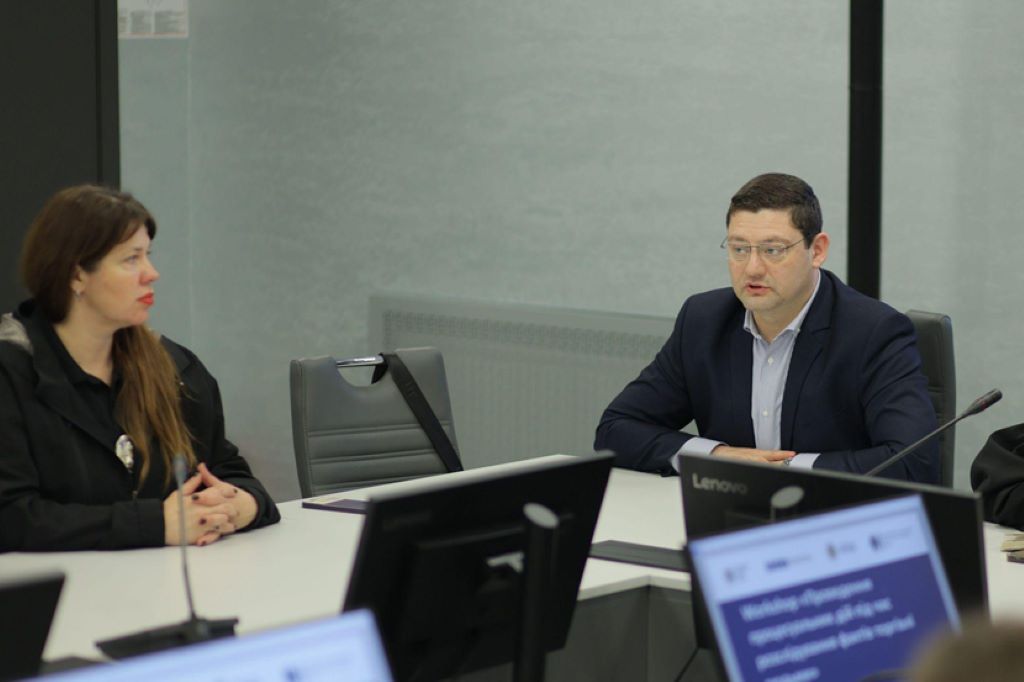
During the practical part, participants simulated a court session and conducted an interview with a victim in accordance with Article 225 of the Criminal Procedure Code of Ukraine, “Interrogation During Pre-Trial Investigation in a Court Hearing,” based on a developed case study.
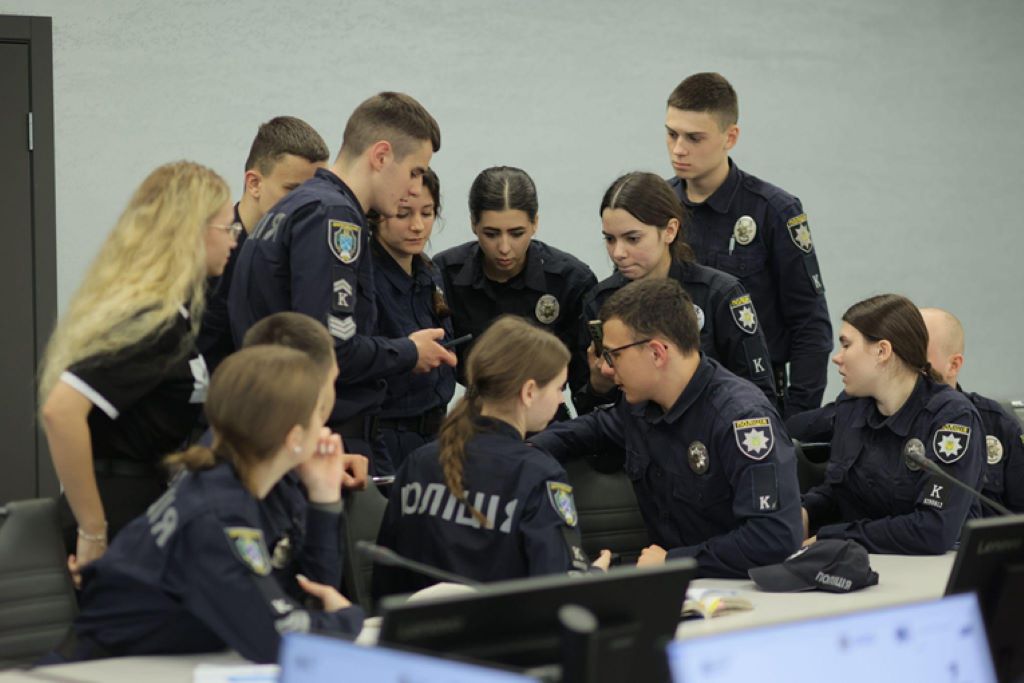
As a result of the workshop, the cadets who performed best received valuable prizes.
Additionally, cadets took part in an elective session on specific features of applying measures to ensure criminal proceedings during the investigation of war and military crimes.
Joining Viktoriia Rohalska and Maksym Taus online was Oleksandr Kukhariuk, Prosecutor of the Department for Public Prosecution in Court and Oversight of Compliance with Laws During the Execution of Judicial Decisions in Criminal Cases of the Specialized Defense Prosecution Office in the Eastern Region.
The cadets learned about the application of legal measures under martial law, particularly concerning suspects in war and military crimes. Special attention was given to preventive measures such as detention.
An important topic of discussion was the arrest of military personnel suspected of criminal offenses and the legal aspects of holding them in custody in a guardhouse.
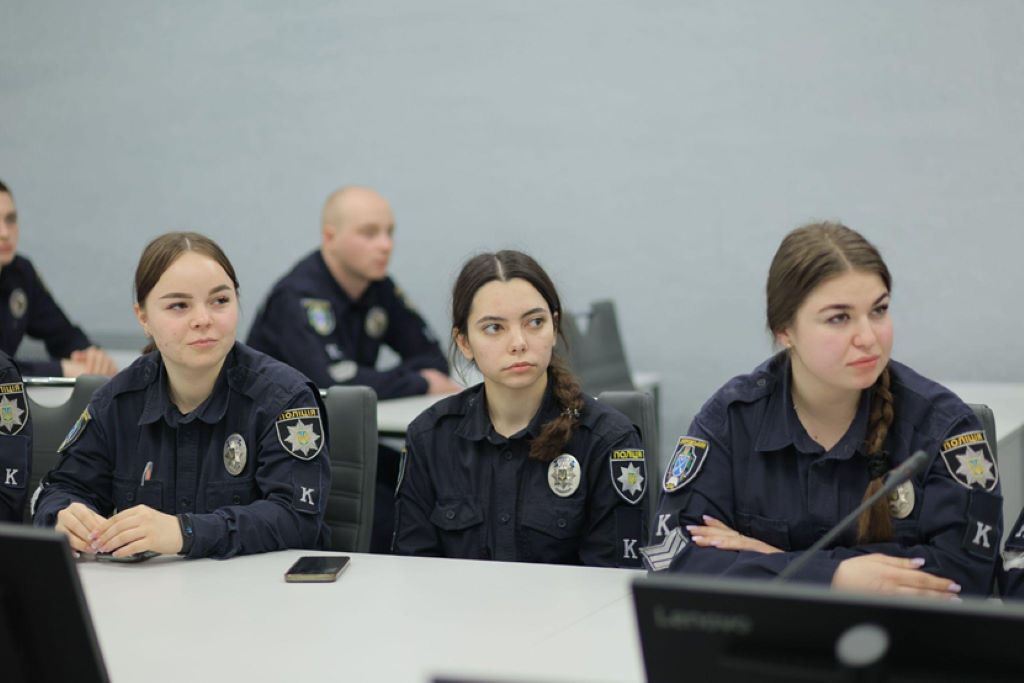
— 344

